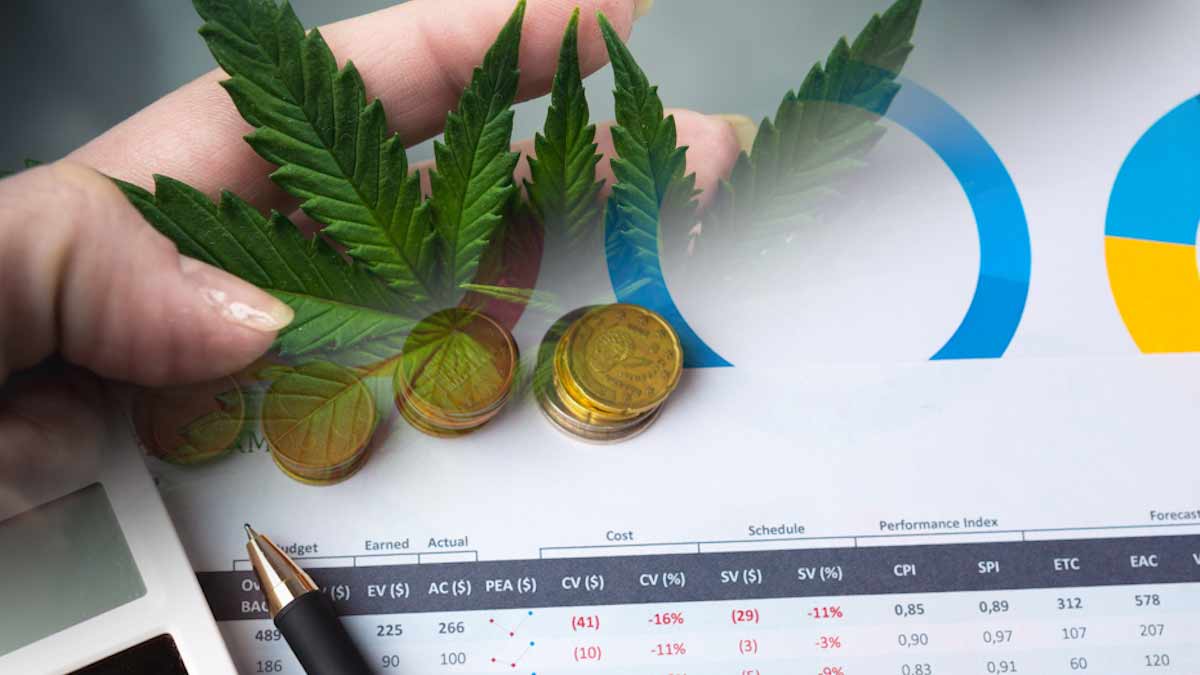Hemp, Inc. Releases Its 2015, 4th Quarter Hemp Nation Magazine
-Hemp, Inc. (OTC PINK: HEMP) announced, today, the release of its quarterly industry publication,The Hemp Nation Magazine (HNM). The 6th “fall/holiday game changing edition” is expected to grab the attention of hemp industry advocates and supporters, as this issue focuses on the rise, fall and resurrection of the hemp industry in America. The online, digital news source is designed to inform, educate, raise awareness and connect the public to the industrial hemp industry by reporting on Politics, Industrial Growth, Banking, Distribution, Medical, Lifestyles and Legalization.
According to The Hemp Nation Magazine’s editor, Darlene Mea, the media staff continues to define the overall editorial direction for the magazine by maintaining the tonal and aesthetic consistency of the Hemp, Inc. brand across all platforms. “Our mission and goal is to have The Hemp Nation Magazine be the first go-to resource for industrial hemp advocates and supporters seeking credible, current, engaging and curated content,” says Mea.
According to the magazine’s publisher, Robert Herman, The Hemp Nation Magazine has garnered nearly one thousand subscribers in less than two months and has fifteen advertisers featured in the magazine. Herman and Mea continue to increase the content and add industry-related articles with celebrity tidbits thrown in the mix.
Bruce Perlowin, CEO of Hemp, Inc., said, “I am very pleased with the direction in which The Hemp Nation Magazine is going. We believe our industry publication is editorially savvy, digitally appealing, extremely informative and politically engaging.” Perlowin continued, “This edition envelopes the maverick spirit that prompted us to start this publishing venture.”
The feature story in the current issue is “Hemp Industry: The Rise, Fall and Resurrection of an American Industry,” by Kyle Ladenburger, which discusses how the “incredibly useful crop (hemp)” became “inaccessible and steeped in controversy.” Readers also learn how “new technologies are only beginning to unlock new possibilities” in the article, “Hemp: It’s on its Way to Your Car Battery and Many Things You Haven’t Yet Imagined.”
Hemp Industry Updates:
In an article released October 15, 2015, Kentucky agriculture commissioner, James Comer, was quoted saying, “The (industrial hemp) crop has set off something of a gold rush in states such as Kentucky, where hundreds have applied for permits to grow it… In the Southeast, you’re going to see it be a part of our future, just like it was a part of our past.” Read the re-print of The South Says No to Marijuana but Yes to Hemp by Thad Moore below.
From the Washington Post, October 15:
For more than 100 years, Jane Harrod’s family set aside a corner of their farm to grow tobacco. The 20 acres they grew when she was a girl was only a fraction of the 400 acres the family owned outside Lexington, Ky., but it promised good money, about $1,000 an acre.
“Most all of us farmers raised some tobacco,” said Harrod, 63. “Tobacco definitely put the clothes on our backs when we were kids.”
But tobacco isn’t the reliable cash crop it once was. That has Harrod and hundreds of other farmers across the South revisiting a plant from deep in the region’s past: industrial hemp.
Known as marijuana’s non-potent cousin, hemp is not likely to replace the billions of dollars that tobacco once provided, but proponents such as Harrod say they’re willing to take a chance on a crop they hope will breathe new life into the South’s family farms.
Those efforts have faced resistance from law enforcement groups that worry that hemp farms could be hiding acres of marijuana, which would become harder to detect.
The South has largely resisted legalizing pot, even for medical use. (Medical marijuana is legal in 23 states and recreational pot is legal in four.) But in states where tobacco once reigned supreme, industrial hemp has come back into vogue.
Kentucky, South Carolina, Tennessee, Virginia and West Virginia are among the 20 states that have enacted laws allowing researchers and farmers to revive the long-forbidden plant. And late last month, the North Carolina legislature approved a proposal to do the same; that bill is on the governor’s desk.
The end of federal subsidies for tobacco in 2004 and decreasing popularity of smoking have wiped out much of the crop’s prominence and profitability. The United States grew $1.8 billion worth of tobacco in 2014, a far cry from its peak in 1981, when the country produced $3.5 billion worth, according to the U.S. Department of Agriculture.
In Kentucky, 60,000 farms once grew some tobacco, mostly family farmers looking to make extra money, said Will Snell, an agricultural economist at the University of Kentucky. Now, just 4,500 do, as large-scale production has taken on a bigger role and family farmers have been pushed out of the business.
Hemp’s backers acknowledge that the plant probably won’t completely fill the gap left by tobacco, but they hope it will give farmers such as Harrod a new, potentially lucrative option.
The Hemp Industries Association estimates that Americans bought $620 million worth of hemp products last year — including clothing, building materials and food made with hemp seeds, said Eric Steenstren, the industry group’s executive director.
“It’s not the replacement, but it’s part of the solution,” said James Comer, Kentucky’s agriculture commissioner, a Republican who sponsored the state’s hemp bill when he was in the legislature.
The crop has set off something of a gold rush in states such as Kentucky, where hundreds have applied for permits to grow it, Comer said.
Harrod said she will apply to grow five acres next year. She and her siblings stopped growing tobacco in 2002 as the crop was in decline and their mother died of lung cancer. Other alternatives, such as vegetables, hogs and cattle, haven’t made up the difference.
Hemp’s relationship with marijuana has helped fuel some of the interest in the crop. The two plants are different varieties of the same species, Cannabis sativa, but instead of a high, hemp can be turned into material used in clothes and building materials.
Supporters pitch hemp as something of a miracle crop — a plant that can be used to make, among other things, car parts and cannabidiol oil, a chemical that’s thought to help people with severe epilepsy.
Hemp once reigned in the South. Harrod, the Kentucky farmer, says her grandfather grew it during World War II. She figures her ancestors grew it back to her farm’s founding in 1804. But it hasn’t been grown widely since the 1950s.
“We used to believe in this plant so much,” said Tennessee State Rep. Jeremy Faison, a Republican who sponsored the state’s bill to legalize the plant. “In the Southeast, you’re going to see it be a part of our future, just like it was a part of our past.” Still, the politics haven’t always been cut-and-dry.
State lawmakers have complained that resistance from federal law enforcement has slowed the plant’s reintroduction and kept farmers from planting their seeds on time. (The Drug Enforcement Agency referred questions to the Department of Justice; a department spokesman didn’t return a request for comment.)
When Kentucky’s pilot program hit such roadblocks, it took Senate Majority Leader Mitch McConnell, a Republican who represents the state, to clear a pathway for research in the 2014 federal farm bill.
After South Carolina passed a hemp bill last year, the pilot program it was supposed to create never materialized. The Legislature’s bill didn’t specify which agency should set it up.
So, lawmakers this year proposed a bill to fill in the gap. It quickly met opposition from the State Law Enforcement Division, which feared hemp could give cover to growers hoping to furtively grow marijuana. The bill never left committee. (The agency declined an interview request.)
In North Carolina, state Sen. Stan Bingham, a Republican, faced similar opposition when he pitched industrial hemp a few years back. When police groups came out against the bill, he dropped the issue.
“I just gave up on it because I couldn’t get it passed,” Bingham said.
But this year, he tried again. Looser federal rules on hemp helped ease the process, and the law enforcement groups didn’t put up a fight. It passed the Legislature last month by a large margin.
“They had some very conservative members that I would’ve thought would’ve voted against this no matter what, but they didn’t. They saw the job opportunities,” Bingham said. “There’s just a lot of things that can be done with this, and I hope we’ll have a bright future.” – By Thad Moore
The Industrial hemp is also making a strong appearance in the state of Florida. In an article posted by the Tenth Amendment Center, entitled, Florida Bill Would Legalize Industrial Hemp, Nullify Federal Ban in Practice a bill was filed with the state House “to authorize the farming, production, and sale of industrial hemp” through House Bill 271. Read the re-print below.
TALLAHASSEE, FL. (Oct. 8, 2015) – Last week, a bill was filed in the Florida State House to authorize the farming, production, and sale of industrial hemp in the state, effectively nullifying in practice the unconstitutional federal prohibition on the same.
Introduced on Oct. 1 by Rep. Michelle Rehwinkel Vasilinda (D-Tallahassee), House Bill 271 (H271) sets up the framework to effectuate a commercial hemp farming program in the state. It reads, in part:
Hemp is considered an agricultural crop in this state that produces a viable, environmentally sound crop requiring less irrigation, fewer pesticides, and fewer toxic refinery processes than alternative materials and has multiple applications that include a wide variety of manufactured and fabricated products.
Hemp cultivators would still be subject to regulation and licensing requirements under the legislation. In order to operate an industrial hemp field lawfully under H271, farmers would be required to have their crops inspected by regulators to ensure they contain “no more than 0.3 percent delta-9 tetrahydrocannabinol.” Farmer would also be required to pay registration fees of up to $100 annually.
Since the enactment of the unconstitutional federal controlled-substances act in 1970, the Drug Enforcement Agency has prevented the production of hemp within the United States. While the agency claims that growing is not prohibited, it also stipulates that growing can only be done with a DEA-issued license. However, only one license has ever been issued by the federal government.
OTHER STATES
By rejecting any need for federal approval, HB271 would set the stage to nullify this federal ban in practice. Passage would join Florida with other states — including Colorado, Oregon, South Carolina, Connecticut, Maine, North Dakota and Vermont — that have passed similar measures.
Farmers in SE Colorado started harvesting the plant in 2013, and farmers in Vermont began harvesting in 2014, effectively nullifying federal restrictions on such agricultural activities. On Feb. 2, the Oregon hemp industry officially opened for business and one week later, the first license went to a small non-profit group. Laws passed last year in Tennessee and South Carolina, and this year in North Dakota, Connecticut and Maine, all legalize hemp even though the federal government considers this plant illegal.
“What this gets down to is the power of the people,” said Mike Maharrey of the Tenth Amendment Center. “When enough people tell the feds to pound sand, there’s not much D.C. can do to continue their unconstitutional prohibition on this productive plant.”
HUGE MARKET FOR HEMP
According to a 2005 Congressional Research Service report, the U.S. is the only developed nation that hasn’t developed an industrial hemp crop for economic purposes.
Experts suggest that the U.S. market for hemp is around $600 million per year. They count as many as 25,000 uses for industrial hemp, including food, cosmetics, plastics and bio-fuel. The U.S. is currently the world’s #1 importer of hemp fiber for various products, with China and Canada acting as the top two exporters in the world.
During World War II, the United States military relied heavily on hemp products, which resulted in the famous campaign and government-produced film, “Hemp for Victory!“
BEYOND FEDERAL PERMISSION
Early in 2014, President Barack Obama signed a new farm bill into law, which included a provision allowing a handful of states to begin limited research programs growing hemp. The “hemp amendment”
…allows State Agriculture Departments, colleges and universities to grow hemp, defined as the non-drug oilseed and fiber varieties of Cannabis, for academic or agricultural research purposes, but it applies only to states where industrial hemp farming is already legal under state law.
In short, current federal law authorizes the farming of hemp – by research institutions only, for research only. Farming for commercial purposes by individuals and businesses is still prohibited. The Florida bill rejects this prohibition and authorizes commercial farming and production anyway.
H271 is an essential first step toward hemp freedom in the state of Florida. It has yet to be assigned to a committee at the present moment, and will be considered during the next legislative year.
The Hemp Industry continues to garner media attention. Pennsylvania is now showing favorable interest in legalizing industrial hemp, while North Carolina awaits only the signature of Governor Pat McCrory to legalize industrial hemp. More states are beginning to realize the enormous environmental and economic benefits of industrial hemp. In case you missed it, read “Pennsylvania’s House of Representatives Loves Hemp” here and the article Hemp Harvest here.
Bruce Perlowin, CEO of Hemp, Inc. (OTC PINK: HEMP), said, “The legalization across American is happening right before our eyes. As more people become educated on the myriad benefits of industrial hemp, including how it can help the economy, more states are likely to vote in favor of legalizing hemp. I believe Commissioner Comer was absolutely right in that industrial hemp will be a part of our future in the Southeast. Industrial hemp is indeed an integral, critical component of the future as well as a hemp processing plant that is needed to build and ensure a new clean, green sustainable environment. We’ve spent millions of dollars so far to help create that future.”
Hemp, Inc.’s multipurpose hemp processing plant, the first and only commercial factory to be built in the United States in almost a century, will be able to vertically integrate growing, decortication, and milling. Hemp, Inc. executives say it will provide the infrastructure America needs to transition to a more clean green American Agricultural and Industrial Hemp Revolution for the American farmers and hemp product manufacturers.
SUBSCRIBE TO HEMP, INC.’S VIDEO UPDATES
“Hemp, Inc. Presents” is capturing the historic, monumental re-creation of the hemp decorticator today as America begins to evolve into a cleaner, green, eco-friendly sustainable environment. What many see as the next American Industrial Revolution is actually the Industrial Hemp Revolution. Join “Hemp, Inc. Presents” and join the hemp revolution.
Watch as Hemp, Inc., the #1 leader in the industrial hemp industry, engages its shareholders and the public through each step in bringing back the hemp decorticator as described in the “Freedom Leaf Magazine” article “The Return of the Hemp Decorticator” by Steve Bloom. Freedom Leaf Magazine, a leading cannabis industry magazine is published by the public company, Freedom Leaf Magazine, Inc. (OTC PINK: FRLF). “Hemp, Inc. Presents” is accessible 24 hours a day, 7 days a week, by visiting www.hempincpresents.com. To subscribe to the “Hemp, Inc. Presents” YouTube channel, visit:https://www.youtube.com/user/HempIncPresents/feed.
Subscribers will automatically get an email from YouTube every time a new Hemp, Inc. video update is posted along with suggestions of other similar videos. Stay up-to-date with the progress of Hemp, Inc.’s multipurpose industrial hemp processing plant while being educated on the industrial hemp industry. Our video update views are collectively reaching over a thousand views per week. Stay informed by subscribing to Hemp, Inc.’s video updates. Hemp, Inc. is positioning itself to be the avant-garde of the industrial hemp industry.
UPDATE ON HEMP, INC.’S DECORTICATION LINE
Hemp, Inc. continues to update its shareholders every step of the way. According to its most recent video update (September 28, 2015), the multipurpose industrial hemp processing plant in North Carolina is in the final stages of being fully reassembled.
The plant will have the ability to vertically integrate growing, decortication, and milling. Not only is it expected to produce millions of dollars in revenue a year from processing kenaf and, later, hemp, it’s aligned with Hemp, Inc.’s commitment to the American farmers and to spearheading a new clean, green American Agricultural and Industrial Revolution.
Nestled on 9 acres, Hemp, Inc.’s 70,000 square-foot multipurpose industrial hemp processing plant is roughly 80% complete. A skilled crew continues to conduct internal assessments of the equipment and has been ensuring every aspect of the Temafa decortication line is prepped for maximum operational efficiency.
HEMP NATION MAGAZINE
HempNationMagazine.com (HNM) is published by Hemp, Inc. and focuses on informing, educating, raising awareness and connecting the public to the powerful world of HEMP. HNM reports on Politics, Industrial Growth, Banking, Distribution, Medical, Lifestyles and Legalization. HNM is your source for all things HEMP and news about this emerging multi-billion dollar industry. For more information on HNM, visit www.HempNationMagazine.com.
SAFE HARBOR ACT
Forward-Looking Statements are included within the meaning of Section 27A of the Securities Act of 1933, and Section 21E of the Securities Exchange Act of 1934, as amended. All statements regarding our expected future financial position, results of operations, cash flows, financing plans, business strategy, products and services, competitive positions, growth opportunities, plans and objectives of management for future operations, including words such as “anticipate”, “if”, “believe”, “plan”, “estimate”, “expect”, “intend”, “may”, “could”, “should”, “will”, and other similar expressions are forward-looking statements and involve risks, uncertainties and contingencies, many of which are beyond our control, which may cause actual results, performance, or achievements to differ materially from anticipated results, performance, or achievements. We are under no obligation to (and expressly disclaim any such obligation to) update or alter our forward-looking statements, whether as a result of new information, future events or otherwise.
(855) 436-7688
info@hempinc.com
www.hempnationmagazine.com
FOR INVESTOR RELATIONS/SHAREHOLDER INFO, CONTACT:
Pacific Equity Alliance, LLC
Zachary R. Logan
Drew S. Phillips
Direct: 858.886.7237
Email: info@pacificequityusa.com
MAPH Enterprises, LLC | (305) 414-0128 | 1501 Venera Ave, Coral Gables, FL 33146 | new@marijuanastocks.com







